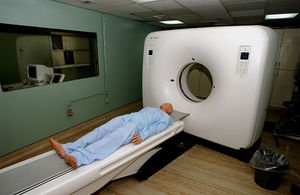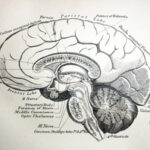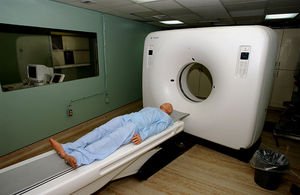There are words in medical terminology that aren’t readily understood. Medical jargon is often beyond the comprehension of people not associated with the medical field; however there is one medical word that almost everyone will understand – especially if they have experienced it in one way or another. The medical term is sundowner’s syndrome or sundowning.
The term, sundowner’s syndrome, implies just what it means. Typically, with sundowner’s syndrome, the individual starts having symptoms of memory loss and dementia in the late afternoon and continues on into the night. People who suffer from Alzheimer’s disease and other neurological conditions may show a marked impact of certain symptoms such as psychosis and dementia during the night. Most of the symptoms present at sunset, which is why the condition is known as sundowning. The symptoms seem to increase on into the night and early morning, until the individual slips into sleep. If an individual is already suffering from some sort of mental disturbance, it is likely that his/her symptoms will get worse late into the evening and will reach a peak of agitation before becoming calm enough to go to sleep.
Symptoms of sundowner’s syndrome
The symptoms exhibited with sundowning may include:
Agitation
Disorientation to time and place
Hallucinations
Abnormally demanding behavior
The above mentioned symptoms may begin to show up around sundown. These symptoms often co-occur with another syndrome called wandering syndrome. The collective effect of these symptoms can lead to emergency situations that may require emergency rescue and resuscitation. Individuals suffering from sundowner’s syndrome and wandering syndrome have been known to leave their homes and get lost for days. Before the days of alarm systems, many Alzheimer’s patients would leave the medical facility in which they lived and fall into harm’s way. They could get lost, fall and injure themselves, fall into traffic, or die from exposure to the elements.
What causes sundowner’s syndrome?
The exact cause of sundowner’s syndrome isn’t known. It remains a mystery to modern science what triggers this phenomenon. The syndrome was named after careful study of the medical records of various patients who were institutionalized in nursing homes, Alzheimer’s homes and hospitals. Many doctors believe that sundowning is caused by a sudden release of the various accumulated pent-up stimuli during the day, which continue to overwhelm and stress the mental faculties during the night. Some doctors also speculate an unknown hormonal disturbance occurring at night. Some doctors also believe that sundowning may also be caused by certain drug interactions between antipsychotic drugs and other medications which cause sedation. The reaction between these drugs could cause agitation and confusion rather than sedation and mental clarity.
Conclusion
Sundowner’s syndrome could be considered to be a mood disorder or a sleep disorder. Though there seem to be many adverse effects due to administering drugs to control the symptoms, most of the therapies now available use sedatives along with antipsychotic and antidepressant drugs. The drugs are given to treat the underlying disease, such as Alzheimer’s or Parkinson’s disease, but often the complication of sundowning arises from taking these meds.
People who care for people with sundowner’s syndrome often find that it helps to provide privacy and activities that are less stimulating in the afternoons and evenings. Less stimulation at night should help to reduce the patient’s agitation at night. It can be frustrating for the caregiver, but it is important to remain calm and patient when caring for a person with this syndrome. Caregivers should take note of when the patient has good nights and bad nights. They will usually find that the nights with fewer symptoms are the nights when there was less stimulation in the evening.
Sources:
Caring.com
Suite 101.com
And
Experience as a nurse



